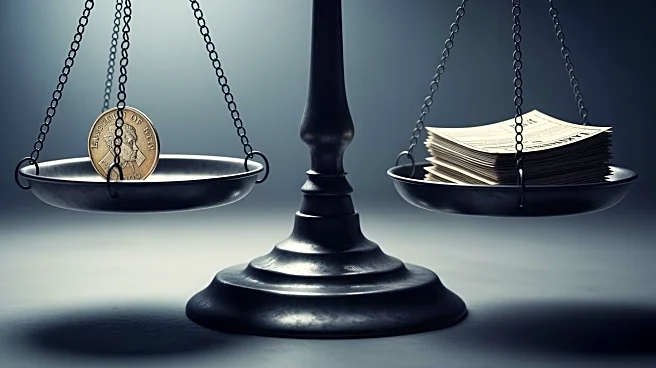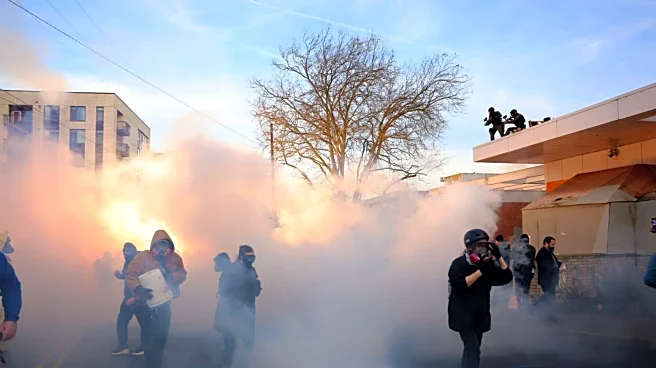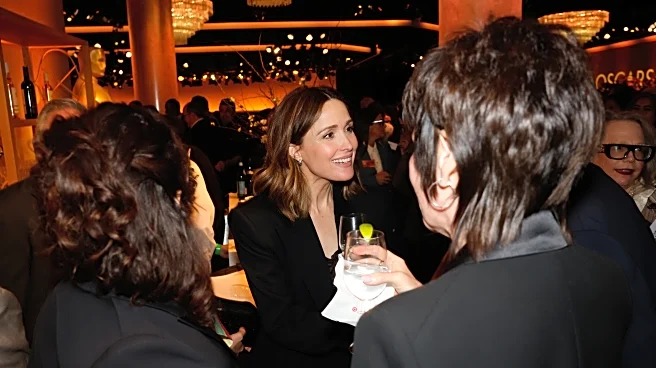What's Happening?
Russia is experiencing an economic slowdown after years of growth driven by military spending on the war in Ukraine. With oil revenues declining and the budget deficit rising, the Kremlin is turning to
increased consumer taxes to stabilize finances. A proposed increase in value-added tax (VAT) from 20% to 22% is expected to generate significant revenue for the state budget. Additionally, taxes on spirits, cigarettes, and other consumer goods are set to rise, impacting ordinary Russians and small businesses. The government is also considering a tech tax on digital equipment, further burdening consumers.
Why It's Important?
The tax increases reflect the Kremlin's need to balance military spending with consumer welfare, posing challenges for ordinary Russians who may face higher living costs. The economic measures could lead to reduced consumer spending, affecting small businesses and potentially slowing economic growth further. The situation underscores the broader impact of the ongoing conflict with Ukraine on Russia's domestic economy, as the government prioritizes military expenditures over consumer needs. The increased financial burden on citizens may lead to public discontent and calls for policy changes.
What's Next?
The VAT increase and other tax measures are set to take effect from January 1, with further changes expected by 2028. As the economic situation evolves, the Russian government may face pressure to reconsider its fiscal policies, balancing military needs with domestic economic stability. The impact on consumer prices and demand could influence future government decisions, potentially leading to adjustments in tax rates or spending priorities. The international community will likely continue monitoring Russia's economic policies, given their implications for global markets and geopolitical stability.
Beyond the Headlines
The economic slowdown and tax increases highlight the long-term consequences of Russia's military actions in Ukraine. The government's reliance on domestic revenue sources reflects the challenges posed by international sanctions and limited access to global financial markets. The situation raises ethical questions about the prioritization of military spending over social welfare, as well as the potential for increased inequality and economic hardship among Russian citizens.









